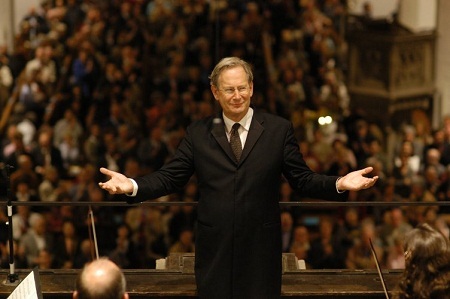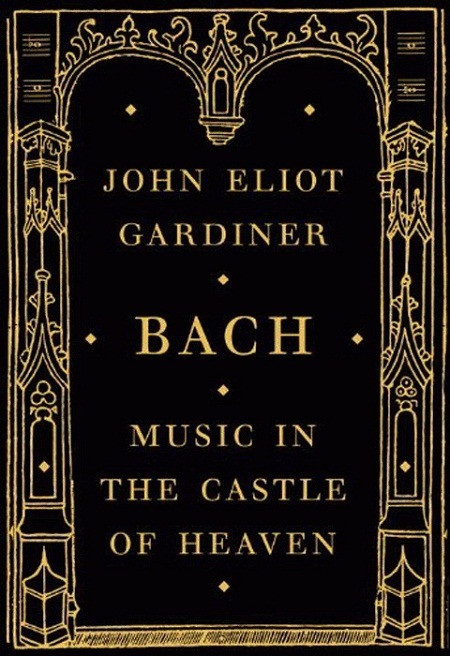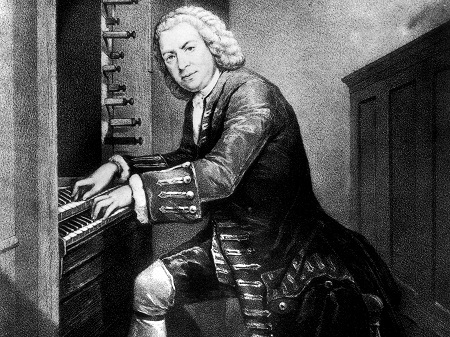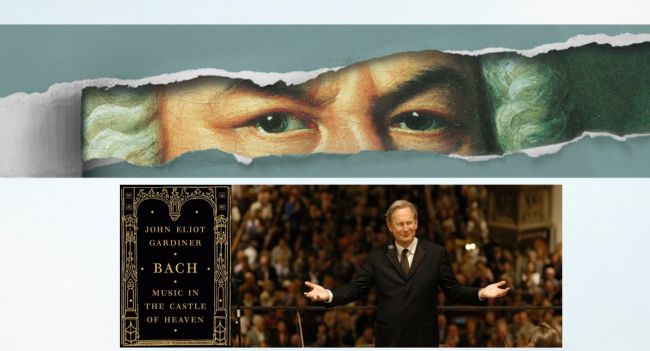Music in the Castle of Heaven: A Portrait of Johann Sebastian Bach [2013] – ★★★★
In this biography, Gardiner strikes at the very heart of J. S. Bach’s genius, presenting to us a complex and sometimes contradictory musician who was also a very empathetic man.
“I was obliged to be industrious. Whoever is equally industrious will succeed equally well“. Johann Sebastian Bach
The music of Bach is complex, inventive, awe-inspiring and brimming with mathematical precision and religious fervour. The man behind it appears equally stern and unapproachable. But, who was Johann Sebastian Bach really and how it came about that a cantor operating in a small region of Germany managed to compose music of such brilliant contours, imaginative force and spiritual depth? In this non-fiction, British conductor John Eliot Gardiner aims to shed light on these puzzling questions. Music in the Castle of Heaven is an illuminating account of Bach’s life and music that starts from the premise that to understand Bach’s art, we have to first immerse ourselves in the very essence of his time and place of birth. Numerous factors influenced Bach and made him into a musician we know today – familial, historic, socio-economic, cultural, educational – and without knowing these we cannot even begin to fathom the workings of Bach’s mind.

Gardiner presents a non-linear narrative of Bach’s life, which, though at times confusing, is still insightful. Johann Sebastian Bach was born in 1685 in Eisenach in the heart of the Thuringian forest, southern Germany. Like Mozart, he was born into a musical family, but had a strict Lutheran upbringing and lost both of his parents when he was still young. This trauma probably contributed to him becoming so withdrawn, but also resilient later in life. This resilience, but also strict discipline, faith and belief in his own abilities, played a role in his later professional success. Bach’s cousin, Christoph Bach, was one of the biggest influences on Bach as a child, demonstrating to young Bach that music can be “a receptacle in which to pour all of his life’s anguishes, one’s faith…and one’s passion and [it can] act as a…vehicle for self-expression” [Gardiner, Penguin Books, 2014: 74].

Bach composed a large amount of religious music, but he was also living in times when Church was the focal point of the individual, family and community’s lives. His schooling was indistinguishable from both religious and musical schooling: “his earliest experiences in music were…indivisible from its role in acts of worship…” [Gardiner, Penguin Books, 2014: 55]. This is important to bear in mind to understand Bach as a man and as a composer, and later we also learn just how central religion was to Bach’s psychology and philosophy. Bach dedicated much of his work to God’s glory, and “a high proportion of Bach’s music, unlike that of his peers, was addressed to a church congregation, rather than a lay audience” [Gardiner, 2014: 126]. The appeal of Bach’s music to religious followers must have been extraordinary, but the curiosity here is that the secular segment of society (and society was growing secular in Bach’s time) was also finding Bach’s music quite entrancing (it was heard both in churches and coffee-houses). We are all concerned with human matters because we are all human, and Bach’s music talks about our humanity and our struggles. It is on this basis that it feels so transcendental, enabling even non-religious listeners to appreciate its beauty, nuances, depth of vision and unshakeable belief: Bach’s music “carried a universal message of hope that can touch anybody regardless of culture , religious denomination or musical knowledge, it springs from the depths of the human psyche”;…“his art celebrates the fundamental sanctity of life, an awareness of the divine and a transcendent dimension as a fact of human existence” [Gardiner, 2014: 15, 523].

The final part of the book dissects Bach’s famous pieces, including his Cantatas (for example, Actus Tragicus and Leichtgesinnte Flattergeister), Mass in B minor, St John Passion and St Matthew Passion, providing much insight and historical context into each of these masterworks.
???? Although Gardiner is needlessly repetitive in the book’s second half, Music in the Castle of Heaven is still an accessible book which will delight both Bach’s admirers and those simply curious about his music. The author understands the importance of the effect of the immediate society on a composer and their development, showing us clearly how Bach’s environment and different factors from his childhood, schooling and work contributed to the man’s standing and psychology, essential elements to grasp in order to comprehend Bach’s music. Gardiner’s goal is achieved – J. S. Bach finally comes across as a human being, a man with ordinary faults and troubles, rather than some distant and isolated genius destined for success.
